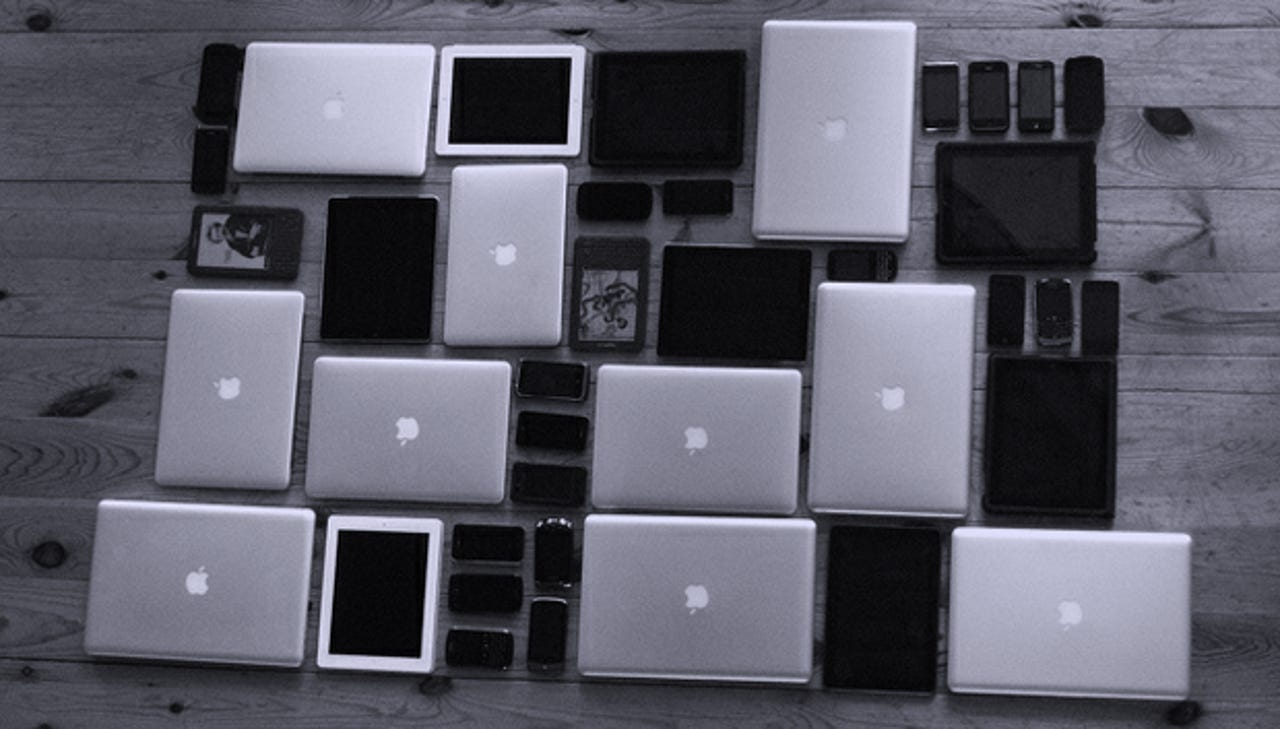Generation Y: Are we a BYOD policy nightmare?

Bring-your-own-device (BYOD) policies are fast becoming a trend entrenched in the fabric of modern business practices.
Before, it was a fairly casual occurrence. Employees would usually have a personal mobile device with them when they attended work, either stowed away in a bag or for taking calls when slinking out of office cubicles with sallow lighting for lunch.
However, with the inclusion of high data allowances and improvements to Internet access, mobiles that were once only for individual use became smartphones and tablets that linked work and personal lives together.

Businesses realized this trend could be used to advantage; saving them from investing in the expensive process of mass-distribution smartphones and tablets that many employees are now expected to be equipped with -- allowing flexible schedules and on-call contact.
This can be problematic. Once the personal becomes meshed with the corporate, logistical concerns begin to seep through the cracks of a trend which can save businesses money -- but may also cause them a loss of profit and headaches in turn.
Why? Simply put, a lack of control over devices used to handle business-related activities. A number of different platforms, applications and storage lockers -- and more importantly, the question of security.
Generation Y members, who are either already in the workplace or attempting to enter it, are a particular group that has caused concern, according to new research.
Those in the twenty-something bracket expect to be able to use their own devices at work, and a third would ignore security policies if they barred the use of personal mobile devices in the workplace.
More than half of the 3,800 employees involved in the survey conducted on behalf of Fortinet, view BYOD as a "right" rather than a "privilege".
Almost 75 percent of those surveyed actively use personal mobile devices in the workplace. The primary driver for this behaviour appears to be the need to stay connected -- being able to access their favourite applications, social media and private exchanges, even within allotted working hours.
35 percent stated they couldn't go a day without checking their social media networks, and 47 percent wouldn't be able to manage 24 hours without sending a text.
The Gen Y's addiction to connection -- if it exists -- can be exploited by businesses worldwide, especially considering they will be the next group to take the reins in leadership, developmental and management roles. Many of them understand the nature of digital networks better than their older counterparts, and this is an area which can be used to expand and increase profitability by tapping into new markets and improving customer relations.
However, this doesn't mean their ability to talk of of deeper-rooted issues that impact businesses is so fluent. More than applying a business framework to the Internet, concerns including security, copyright and adhering to protocol are not quite as important to a generation styled as more 'individual' and demanding than others.
Awareness may not keep them from breaking the rules for personal benefit. But, it isn't all doom and gloom. The research also discovered another interesting attribute of Gen Y -- they may break the rules to suit personal preferences, but this inclination for individual action also breaches the realms of responsibility.
66 percent considered themselves, and not the company, to be responsible for personal devices they use for work purposes, whereas only 22 percent believe the corporation should be held responsible.
If the majority of twenty-somethings feel devices are their concern, why not utilize this in BYOD policy, in order to make the ever-insistent group take responsibility formally -- and any content or activity that takes place through them -- rather than trying to stamp out the trend?
Patrice Perche, Fortinet vice president of international sales and support said:
"The survey clearly reveals the great challenge faced by organizations to reconcile security and BYOD. While users want and expect to use their own devices for work, mostly for personal convenience, they do not want to hand over responsibility for security on their own devices to the organization.
Organizations cannot rely on a single technology to address the security challenges of BYOD. The most effective network security strategy requires granular control over users and applications, not just devices."
Businesses need to keep in mind this sense of entitlement, if they are to maintain a firm grip on the ways their employees work, and how corporate information is used, transferred and stored.
In the same manner as recent research showed the huge amount of free file-sharing programs used to share corporate documents by BYOD employees, if Gen Y have little regard for security policy, who knows where sensitive information may end up?
Image credit: Jeremy Keith
Related: